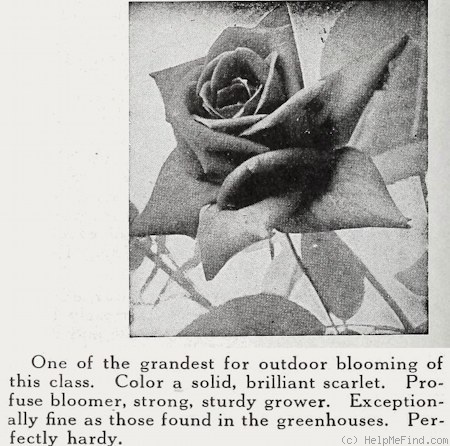|
|
'Écarlate' rose Description

Photo courtesy of CybeRose
ARS:
Medium red Hybrid Tea.
Registration name: Écarlate (hybrid tea, Boytard 1907)
Bloom:
Scarlet - crimson. None to mild fragrance. Medium, semi-double (9-16 petals), cluster-flowered, cupped-to-flat bloom form. Blooms in flushes throughout the season.
Habit:
Short, dense, upright.
Height: 42" (105cm).
Growing:
USDA zone 6b through 9b (default).
Patents:
Patent status unknown (to HelpMeFind).
Notes:
Some differences of opinion about parentage, see References. The discovere believed the pollen parent is either Général Jacqueminot or Eugène Fürst.
|